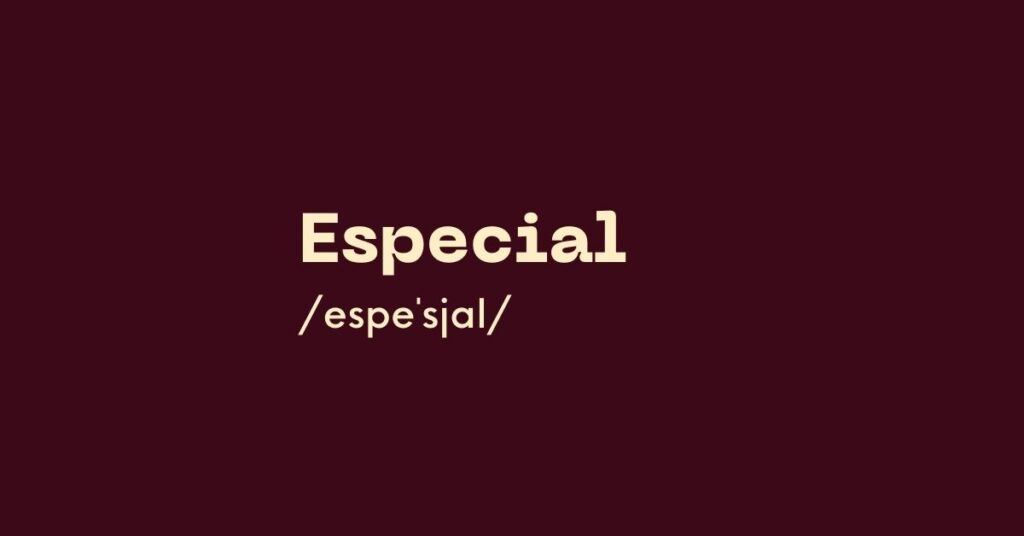Today’s Spanish word of the day is “especial”.
It’s an adjective meaning “special”. Since it ends with a consonant, it keeps the same form regardless of if you are referring to a masculine or feminine noun. For example, you could say “una mujer especial” (“a special woman”), or “un hombre especial” (“a special man”).
This is in contrast to many Spanish adjectives that end with “-o” when referring to a masculine noun and “-a” when referring to a feminine noun.
The word “especial” comes from Latin specialis, meaning “particular” or “individual”, which is also the root of the English word “special”.
Example sentences
Ella tiene un talento especial para la música.
She has a special talent for music.
Hoy es un día especial para mí.
Today is a special day for me.
Le preparé una sorpresa especial.
I prepared a special surprise for him/her.
Hay una oferta especial en la tienda.
There’s a special offer at the store.
Necesito un permiso especial para entrar.
I need a special permit to enter.

